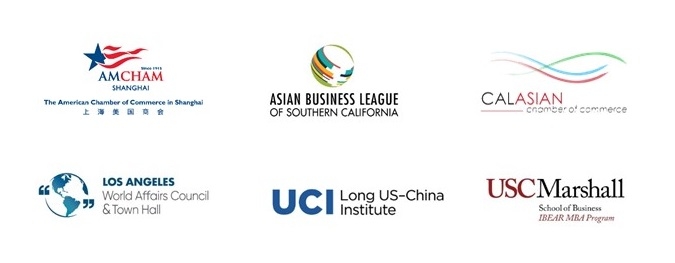Examining The Perceptions and Realities of the U.S.-China Relationship
VIEW EVENT DETAILSHow Can Business Navigate Through The Maze of Cooperation, Competition and Confrontation?
The U.S.-China relationship is the most important bilateral relationship in the world. Despite recent tensions, the two economies remain inextricably linked. Total bilateral trade exceeded $600 billion in 2020, and the U.S.-China Business Council estimates that U.S. exports to China supported 1.2 million domestic jobs in 2019. In addition, Chinese holdings of U.S. securities was roughly $2.1 trillion at the end of 2020 according to the Rhodium Group - $700 billion in equity and $1.4 trillion in debt securities - dwarfing the $1.2 trillion in U.S. holdings of Chinese securities.
Under the Trump Administration, there was a shifting mix of policies that led to a decline in the relationship and a trade war. According to the Council on Foreign Relations, U.S.-China relations deteriorated sharply in 2020, after three years of steady decline. Beijing and Washington traded blame over the coronavirus, remained locked in a trade war, competed over 5G networks and other technologies, and clashed over rights abuses in Xinjiang and Hong Kong.
As the Biden Administration looks to chart a new course on China, join Asia Society Southern California for a fireside chat with Jim McGregor, a well known and widely followed expert on China. Jim is a sought-after speaker, and the author of two highly regarded books: No Ancient Wisdom, No Followers: The Challenges of Chinese Authoritarian Capitalism; and One Billion Customers: Lessons from the Front Lines of Doing Business in China. ASSC Advisory Board member Dr. Ira Kasoff, who lived and worked extensively in China as a businessman and a diplomat, will moderate.

James McGregor is Greater China Chairman for APCO Worldwide where he serves as a senior advisor on China business, political and communications strategies for a wide variety of multinational corporations. He is also the author of two highly regarded books: No Ancient Wisdom, No Followers: The Challenges of Chinese Authoritarian Capitalism; and One Billion Customers: Lessons from the Front Lines of Doing Business in China. As a journalist, McGregor covered Congress during the Reagan administration, and was bureau chief in Taipei and Beijing for The Wall Street Journal. Switching to business, he was the CEO of Dow Jones in China and later founded a China-focused research and advisory firm for hedge funds. McGregor also served as chairman of the American Chamber of Commerce in China. He is a member of the Council on Foreign Relations, National Committee on US-China Relations, Global Council of the Asia Society and is on the board of the US-China Education Trust. He has lived in China for 30 years and splits his time between Shanghai and Beijing. Due to the pandemic, he is now working out of his lake cabin in Northern Minnesota.

Dr. Ira Kasoff is a recognized expert on Asia. He has lived and worked extensively in the region – ten years in mainland China (Beijing and Shanghai), eight years in Japan, eight in Hong Kong, and two in Taiwan. He is a member of the International Advisory Council of APCO Worldwide, a global public affairs consultancy.
From 2007-10 Kasoff served as Deputy Assistant Secretary of Commerce for Asia, where he oversaw Asia trade policy for the Department. From 1985 to 2007, Kasoff was a diplomat, serving in senior positions in the US Consulate General in Shanghai, Osaka and Hong Kong and the US Embassy in Tokyo. Earlier in his career Kasoff worked for the Boston Consulting Group (BCG), as the Beijing representative for Fuqua World Trade Corporation, and at the National Committee on US-China Relations.
Dr. Kasoff received his B.A. from Harvard University in 1973, and his Ph.D. from Princeton University in 1982. He is the author of a book on Chinese intellectual history, published by the Cambridge University Press, and translated into Chinese and published by the Shanghai Classics Publishing House.
For any questions for the speakers for this program please submit in advance to [email protected].
Promotional Partners:
